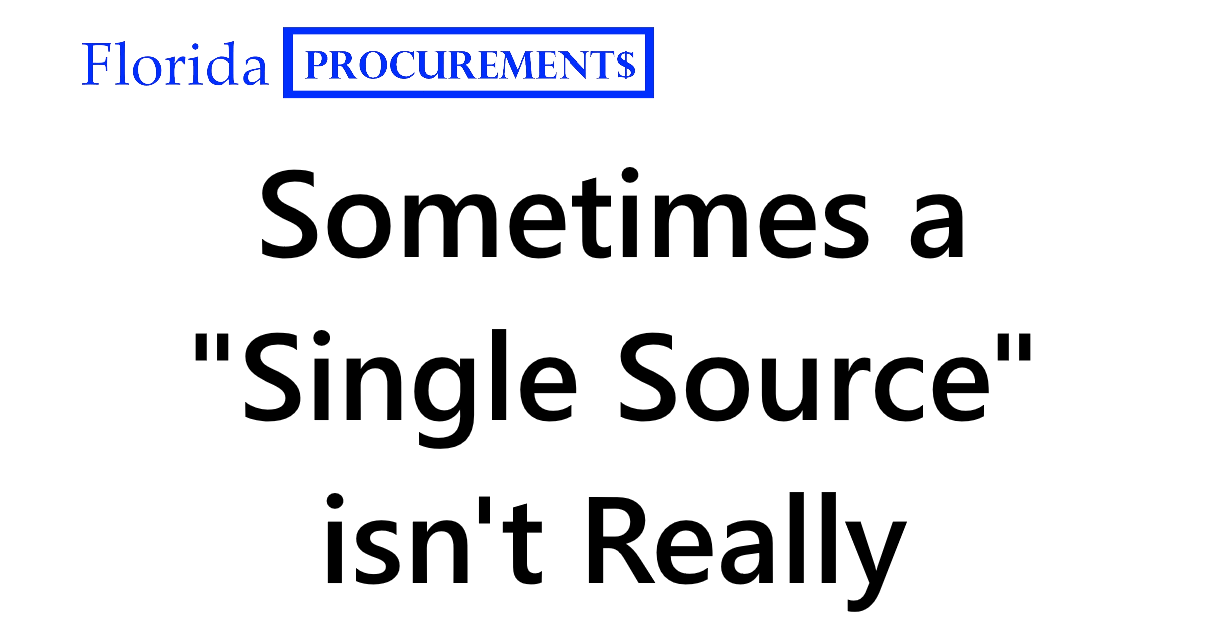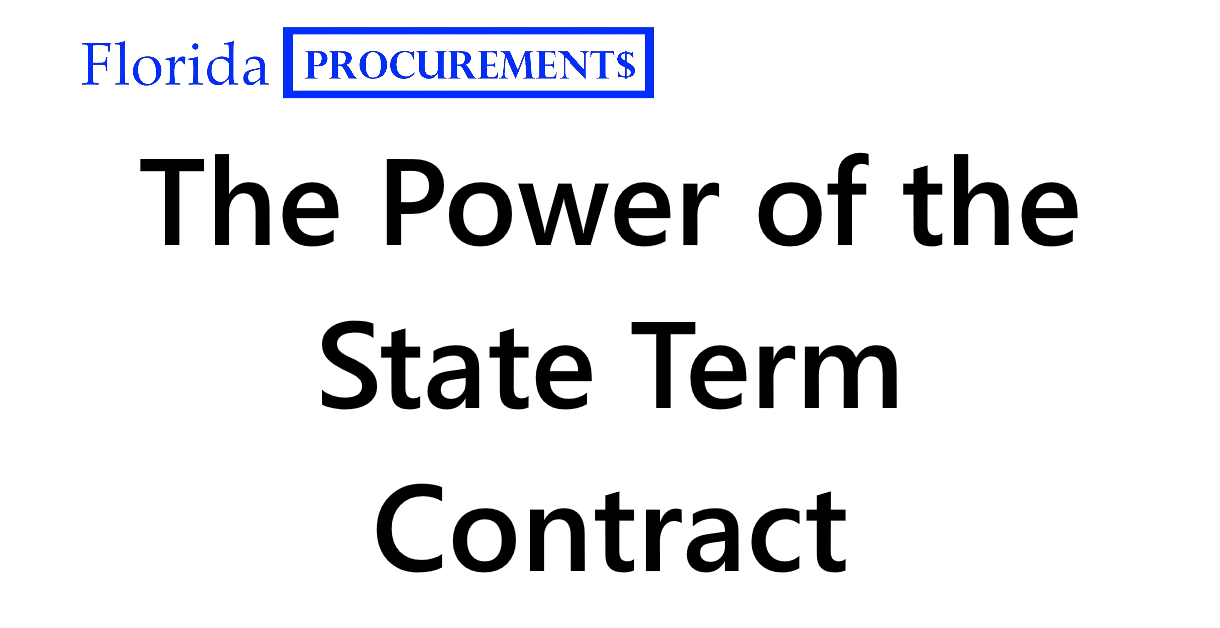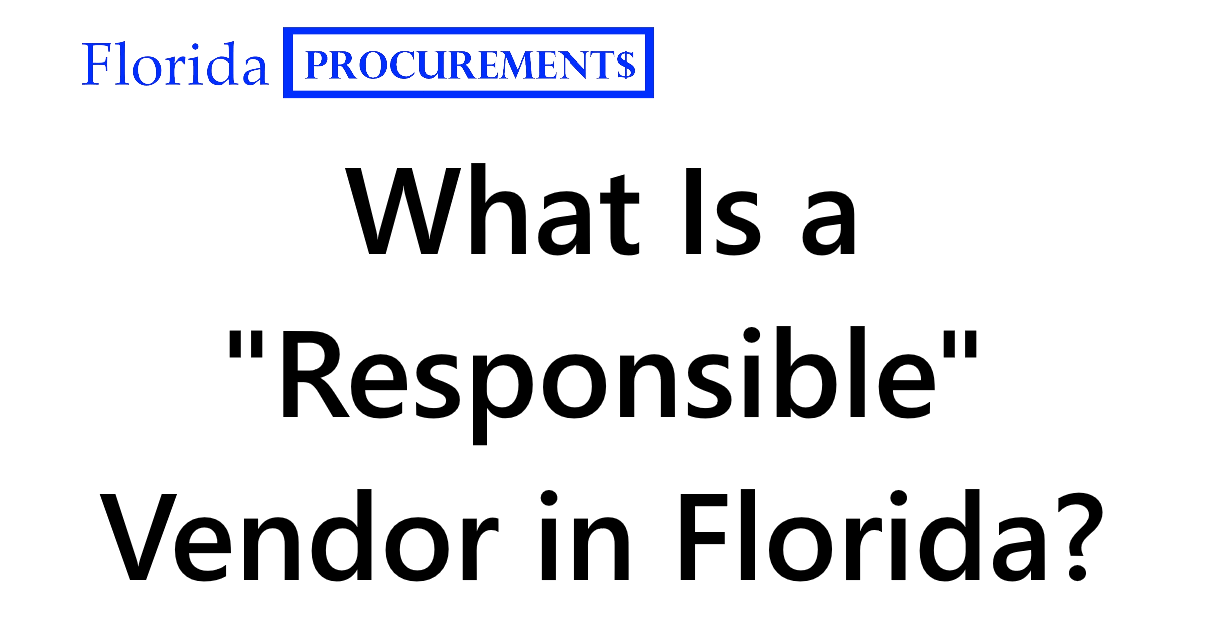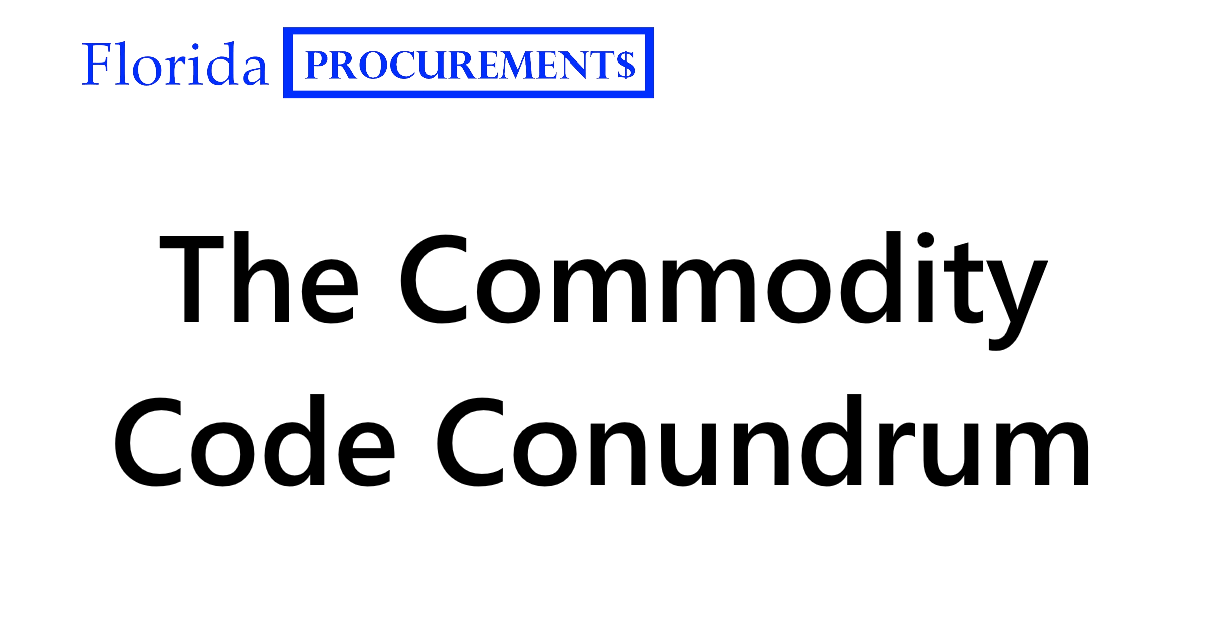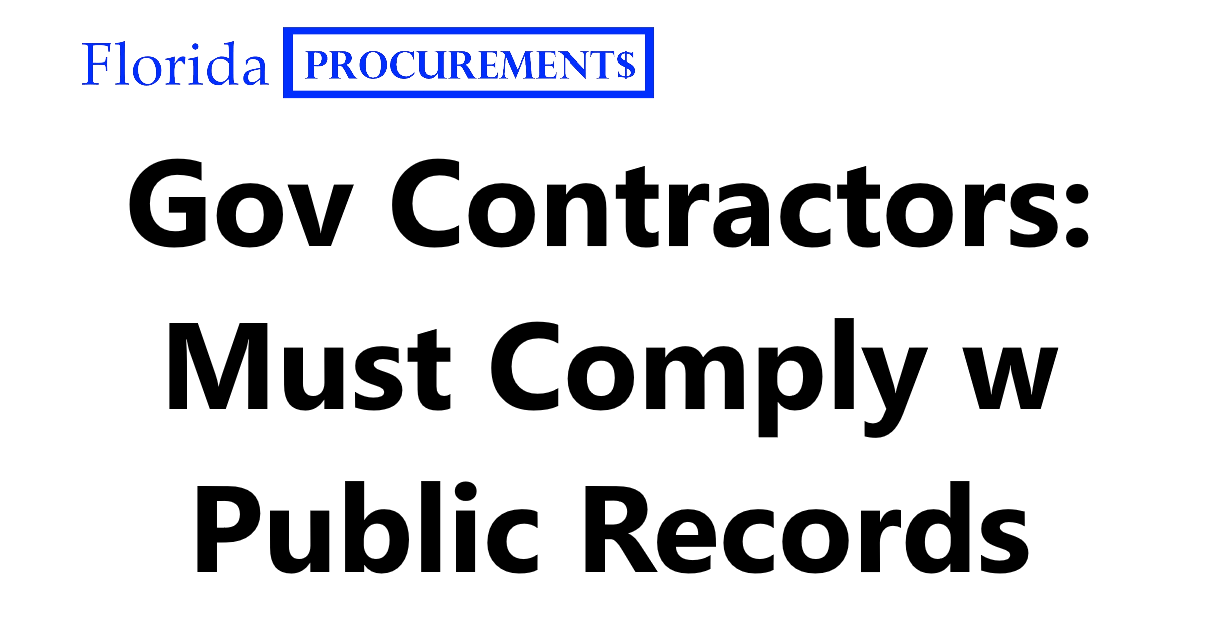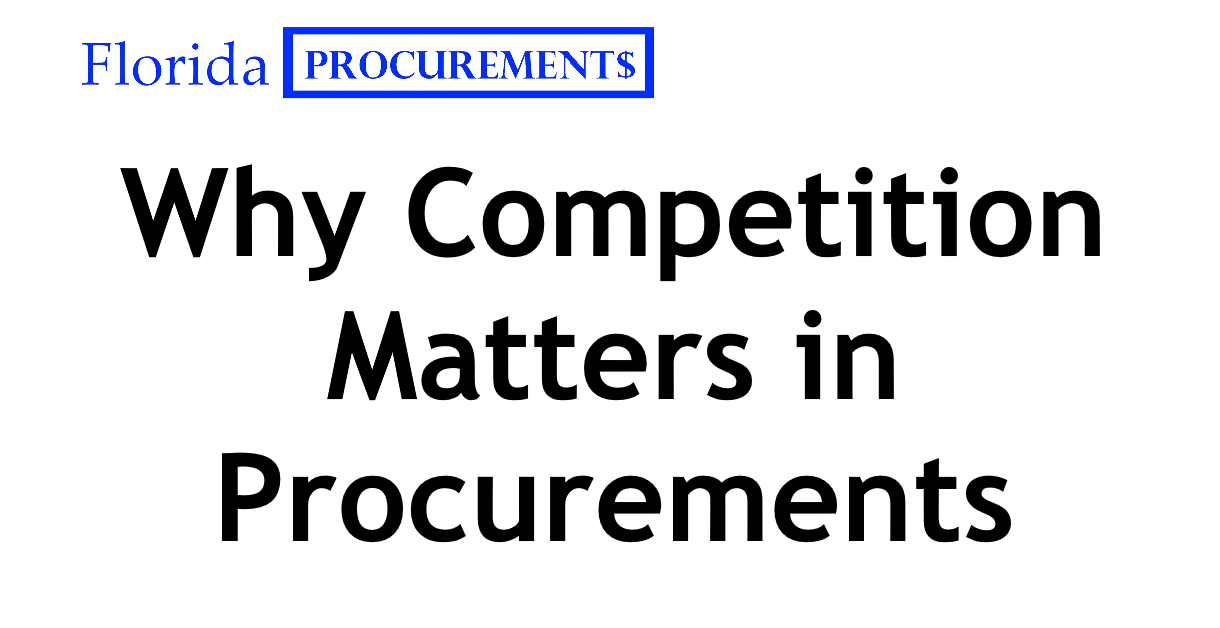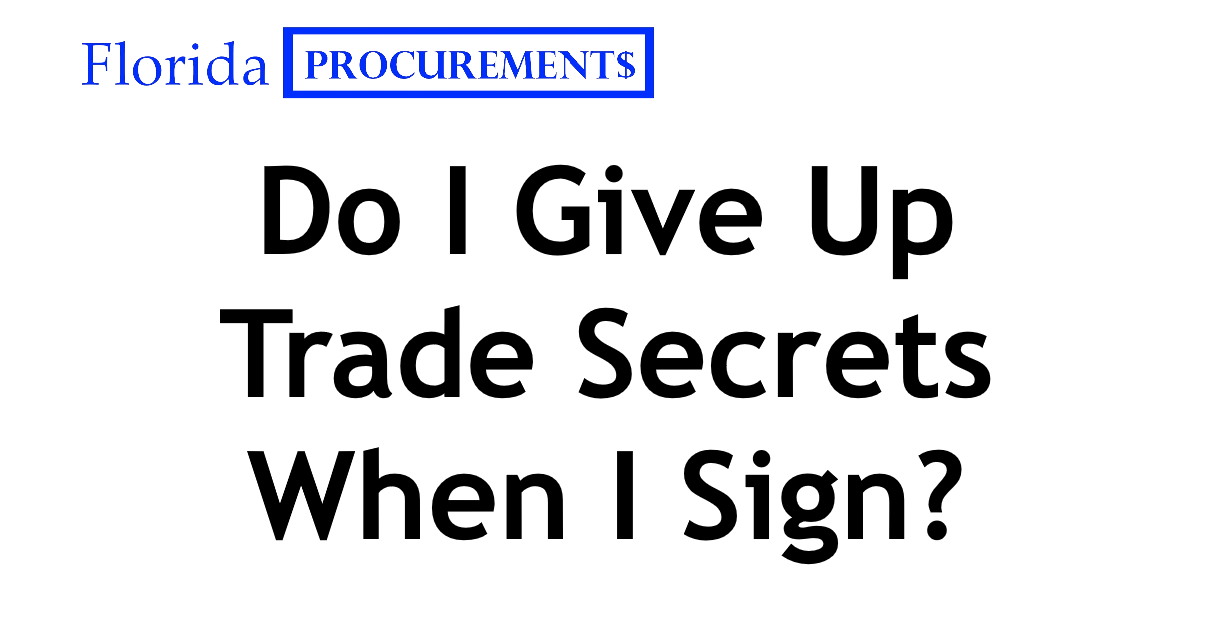
- March 18, 2025
- Sean Gellis
- 0
Welcome to FloridaProcurements.com (FlaProc), your authoritative resource for navigating Florida’s government contracting landscape, with particular focus on transportation and technology opportunities. FlaProc provides free, expert guidance to help companies identify and secure state contracting opportunities throughout Florida.
This resource is maintained by Attorney Sean Gellis of Gellis Law, PLLC, one of less than 75 attorneys Board Certified in State and Federal Government and Administrative Practice by The Florida Bar. Mr. Gellis brings unique insight to government contracting, having served as the Chief of Staff of the Florida Department of Management Services (DMS), General Counsel of the Florida Department of Transportation (FDOT), and Deputy General Counsel of the Florida Office of Insurance Regulation – positions that provided direct oversight of technology initiatives and issues of statewide importance. His record in bid protest litigation reflects the sophisticated advocacy and strategic thinking he brings to government contracting matters, particularly in complex transportation and technology procurements. Sean also leads Procurement Insider, a confidential subscription service that provides technology vendors with strategic intelligence and insider analysis of Florida government opportunities. Learn more about transforming your approach to government contracting at www.gellislaw.com/procurement-insider
Do I Give Up My Trade Secrets When I Sign a Government Contract?

Understanding Trade Secret Protection in Florida Government Contracting
One of the most significant concerns I hear from companies considering government contracts is whether they’ll be forced to surrender their valuable intellectual property and trade secrets. This concern is especially prevalent among technology companies, manufacturers with proprietary processes, and service providers with unique methodologies – all of whom view their proprietary information as fundamental to their competitive advantage.
The good news? The short answer is no – you don’t automatically give up your trade secrets when contracting with Florida government agencies. However, protecting those secrets requires understanding Florida’s unique legal landscape and taking specific, proactive steps throughout the contracting process. Without these precautions, your valuable intellectual property could indeed become public.
The Fundamental Tension: Public Transparency v. Private Innovation

Florida has earned a well-deserved reputation for government transparency. The state’s public records law (Chapter 119, Florida Statutes) creates one of the nation’s most robust frameworks for citizen access to government records. When paired with Florida’s constitutional right of access to public records (Article I, Section 24 of the Florida Constitution), this creates a strong presumption that government records should be open for inspection.
When a private company contracts with a government entity, this transparency principle extends to many aspects of that relationship. Contract terms, pricing, deliverables, performance metrics, and communications with agency staff may all become subject to public disclosure through records requests. Any competitor, journalist, or curious citizen can typically request and receive these documents with minimal justification.
This transparency serves vital public interests:
- It enables taxpayers to see how their money is spent
- It helps prevent corruption and favoritism in contracting
- It allows public oversight of government operations
- It creates accountability for both agencies and vendors
Yet this same transparency can threaten legitimate private interests, particularly when it comes to proprietary information that provides competitive advantage. Recognizing this tension, Florida law carves out specific protections for trade secrets – creating a careful balance between public transparency and private innovation.
The Legal Framework: How Florida Law Protects Trade Secrets

The protection of trade secrets in Florida government contracting rests on several interconnected legal provisions:
1. The Public Records Trade Secret Exemption
Section 815.045, Florida Statutes, explicitly exempts trade secrets from Florida’s public records law. This provision recognizes that forcing disclosure of trade secrets would:
“…negatively impact the business interests of those providing an agency such trade secrets by damaging them in the marketplace, and those entities and individuals disclosing such trade secrets would hesitate to cooperate with that agency, which would impair the effective and efficient administration of governmental functions.”
The Legislature went further, acknowledging that “the public and private harm in disclosing trade secrets significantly outweighs any public benefit derived from disclosure, and the public’s ability to scrutinize and monitor agency action is not diminished by nondisclosure of trade secrets.”
2. Criminal Penalties for Unauthorized Disclosure
To underscore the seriousness of trade secret protection, Florida law makes unauthorized disclosure of trade secrets a felony offense. Section 815.04, Florida Statutes, establishes that a person who willfully, knowingly, and without authorization discloses or takes trade secret data commits a third-degree felony.
This criminal liability creates a strong disincentive for government employees to casually disclose properly designated trade secrets, even in response to public records requests.
3. Trade Secret Definition Under Florida Law
Section 688.002(4), Florida Statutes, which adopts the Uniform Trade Secrets Act, defines a trade secret as:
“information, including a formula, pattern, compilation, program, device, method, technique, or process, that: (a) Derives independent economic value, actual or potential, from not being generally known to, and not being readily ascertainable by proper means by, other persons who can obtain economic value from its disclosure or use; and (b) Is the subject of efforts that are reasonable under the circumstances to maintain its secrecy.”
Additionally, section 812.081(1)(f), Florida Statutes, provides an expanded definition that includes “any scientific, technical, or commercial information, including financial information” and specifically recognizes designs, processes, procedures, supplier lists, customer lists, and business codes.
4. Contractor-Specific Requirements Under Florida Law
Section 688.002(4), Florida Statutes, which adopts the Uniform Trade Secrets Act, defines a trade secret as:
“information, including a formula, pattern, compilation, program, device, method, technique, or process, that: (a) Derives independent economic value, actual or potential, from not being generally known to, and not being readily ascertainable by proper means by, other persons who can obtain economic value from its disclosure or use; and (b) Is the subject of efforts that are reasonable under the circumstances to maintain its secrecy.”
Additionally, section 812.081(1)(f), Florida Statutes, provides an expanded definition that includes “any scientific, technical, or commercial information, including financial information” and specifically recognizes designs, processes, procedures, supplier lists, customer lists, and business codes.

Mandatory Contract Provisions
Every state, county, or municipal contract for services in Florida must contain specific public records compliance language, including:
- A boldfaced statement (minimum 14-point type) identifying the agency’s public records custodian contact information
- Explicit provisions requiring contractor compliance with public records laws
Contractor Obligations That Affect Trade Secrets
The statute requires contractors to:
- 1. Maintain Public Records: Keep and maintain all public records required to perform the contracted services. This includes documentation containing trade secrets, though such information remains exempt from disclosure.
- 2. Respond to Records Requests: Provide records when requested by the agency's custodian or allow inspection within a reasonable time. This is where trade secret designation becomes critical - without proper designation, contractors may be required to disclose proprietary information.
- 3. Protect Exempt Information: Ensure that exempt or confidential records (including properly designated trade secrets) are not disclosed except as authorized by law. This obligation continues both during and after the contract term.
- 4. Handle Records Upon Contract Completion: Either transfer all public records to the agency or maintain them according to retention requirements. If maintaining records, contractors must continue to protect trade secrets from improper disclosure.
Records Request Process and Contractor Protection
A key procedural protection in the statute is that records requests must first go to the public agency, not directly to the contractor. This creates an important buffer:
- 1. The request goes to the agency's public records custodian
- 2. If the agency doesn't possess the records, they notify the contractor
- 3. The contractor then provides records to the agency (not directly to the requester)
- 4. The agency applies appropriate exemptions before disclosure
This process allows agencies to properly apply trade secret exemptions and gives contractors an opportunity to assert protection for their proprietary information before disclosure occurs.
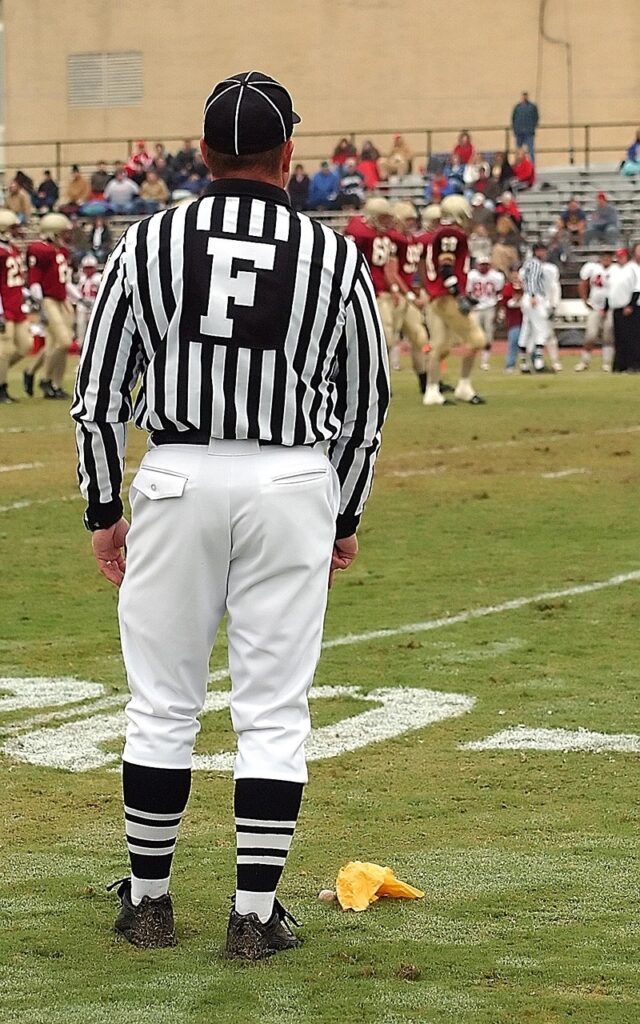
Enforcement and Penalties
The enforcement provisions create significant incentives for compliance:
- Agencies must enforce contract provisions if contractors fail to provide records
- Contractors face potential penalties under section 119.10, Florida Statutes for non-compliance
- Civil actions against contractors can result in payment of attorney's fees and enforcement costs
However, these penalties apply to improper withholding of public records, not to legitimate protection of properly designated trade secrets. The statute specifically acknowledges that records that are “exempt or confidential and exempt” (which includes trade secrets) are not subject to disclosure.
Practical Implications for Trade Secret Protection
The contractor requirements create several practical implications for protecting trade secrets:
- 1. Documentation Is Essential: The comprehensive records requirements mean contractors must maintain documentation of their trade secret designations throughout the contract and potentially beyond.
- 2. Agency Relationship Matters: Since records requests flow through the agency first, maintaining a good working relationship with the agency's records custodian is critical for proper trade secret handling.
- 3. Response Timing Is Critical: Contractors must respond to agency records requests "within a reasonable time" - delays in asserting trade secret protection could potentially undermine exemption claims.
- 4. Post-Contract Protection Continues: Trade secret obligations continue after contract completion, requiring ongoing vigilance for records maintained by the contractor.
The intersection of contractor public records requirements and trade secret protection creates a complex compliance environment that requires careful planning and execution throughout the contract lifecycle.
5. Industry-Specific Protections
Certain industries enjoy additional procedural protections for trade secrets. For example, Section 624.4213, Florida Statutes, establishes a specific process for insurance entities to designate trade secret information submitted to regulatory agencies. While this process is specific to insurance regulation, its framework provides excellent guidance for all government contractors.
What Actually Qualifies as a Trade Secret? Separating Fact from Fiction

Not everything a company considers “confidential” or “proprietary” meets the legal definition of a trade secret. Contractors frequently overdesignate information as trade secrets, which can actually undermine protection for legitimately sensitive information.
Core Requirements for Trade Secret Protection
To qualify for protection under Florida law, information must:
- Derive independent economic value from its secrecy
- The information must provide actual or potential economic advantage specifically because it isn’t widely known
- The value must come from the information itself, not merely the effort put into developing it
- Not be generally known or readily ascertainable
- Information available in industry publications, easily reverse-engineered, or commonly known in the industry doesn’t qualify
- The key question is whether competitors could obtain this information through legitimate means without extraordinary effort
- Be subject to reasonable security measures
- You must take active steps to protect the information in your normal business operations
- Courts examine factors like confidentiality agreements, limited access protocols, and physical/electronic security measures
- Be used in business operations
- The information must be actively used in your business, not merely potential future innovations
- It must contribute to your offerings or operations in a tangible way
What Typically Qualifies in Government Contracting
Based on case law and agency practice, these categories of information frequently receive trade secret protection when properly designated:
-
Manufacturing processes and formulations
- Specific composition of materials
- Production techniques and parameters
- Quality control methodologies -
Software and technology
- Source code (not compiled executables)
- Database structures and algorithms
- System architecture designs -
Business methodologies
- Unique service delivery frameworks
- Proprietary analysis techniques
- Custom implementation approaches -
Financial information
- Detailed cost structures (not final pricing)
- Profit margins and business models
- Financial forecasting methodologies -
Research and development
- Unpublished research findings
- Testing methodologies and results
- Product development roadmaps
What Typically Doesn't Qualify
-
Final contract pricing
- The amounts the government pays for products/services are almost never protected
- Unit prices in government contracts are typically public information -
General business practices
- Standard industry practices not unique to your company
- Widely used methodologies or approaches -
Staff qualifications and experience
- Résumés, credentials, and experience of team members
- General descriptions of team capabilities
-
Information available elsewhere
- Data published in marketing materials
- Information disclosed in other public contracts - Details available through legitimate market research -
Basic contract terms
- Delivery schedules o Standard terms and conditions
- General scope of work
Real- World Example: XYZ Technology Case

To illustrate these distinctions, consider a case I encountered during my government service. A technology vendor (we’ll call them XYZ) submitted a proposal for a custom software solution and designated virtually the entire document as “trade secret,” including basic information about project timelines, staff qualifications, and standard industry practices.
When a competitor filed a public records request, the agency informed XYZ., The agency questioned whether all the materials XYZ claimed as trade secret qualified for protection. Only their custom algorithms, database structure, and certain aspects of their system architecture received protection. Their overdesignation not only failed to protect most information but also damaged their credibility the agency.
The Bottom Line: Practical Protection is Possible
Florida law recognizes and protects legitimate trade secrets, even in government contracting. However, that protection isn’t automatic – it requires understanding, diligence, and strategic implementation.
With a thoughtful approach that:
- Correctly identifies genuine trade secrets
- Implements proper protection procedures
- Maintains consistent security practices
- Balances protection with appropriate transparency
You can successfully engage in government contracting while keeping your most valuable proprietary information protected. The key is approaching trade secret protection as an ongoing strategic process rather than a mere contractual formality.
Sean Gellis is a Board Certified specialist in State and Federal Government and Administrative Practice with over a decade of government experience, including service as Chief of Staff of the Department of Management Services, General Counsel of the Florida Department of Transportation, and Deputy General Counsel for the Florida Office of Insurance Regulation. Through Gellis Law, PLLC, he provides strategic counsel on government procurement, administrative law, and regulatory matters. Sean also leads Procurement Insider, a confidential subscription service that provides technology vendors with strategic intelligence and insider analysis of Florida government opportunities. Learn more about transforming your approach to government contracting at www.gellislaw.com/procurement-insider


